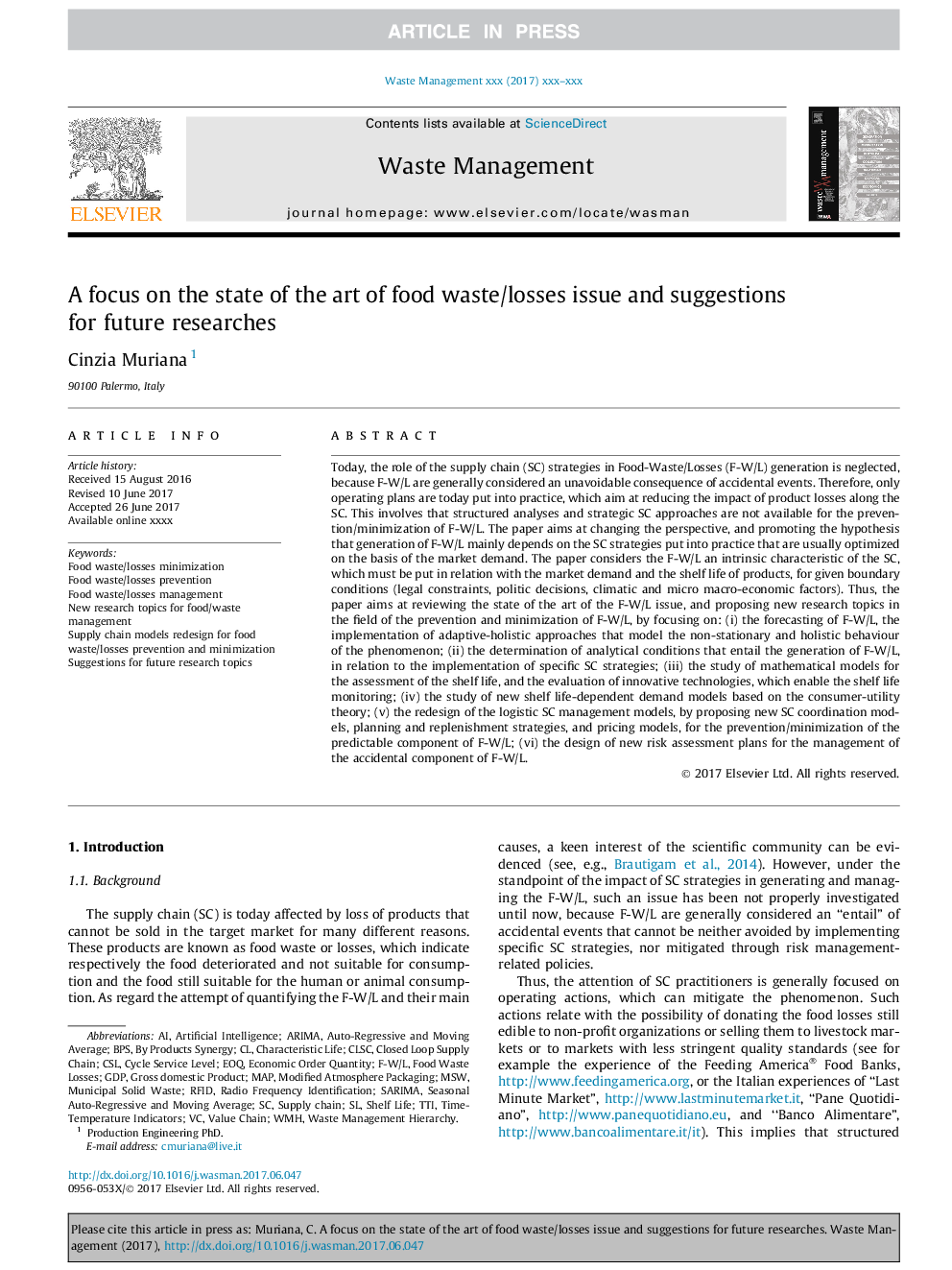ترجمه فارسی عنوان مقاله
تمرکز بر وضعیت هنر از دست دادن مواد غذایی / مسائل مربوط به تلفات و پیشنهادات برای تحقیقات آینده
عنوان انگلیسی
A focus on the state of the art of food waste/losses issue and suggestions for future researches
| کد مقاله | سال انتشار | تعداد صفحات مقاله انگلیسی |
|---|---|---|
| 108549 | 2017 | 14 صفحه PDF |
منبع

Publisher : Elsevier - Science Direct (الزویر - ساینس دایرکت)
Journal : Waste Management, Volume 68, October 2017, Pages 557-570

